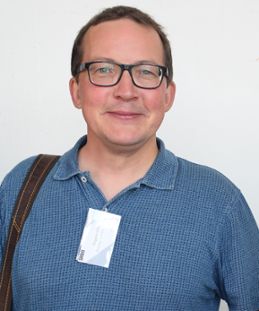The collaboration between Swedish and African climate researchers within CORDEX have been ongoing since 2011, and are now showing how capacity building in Africa gives possibility for more researchers to contribute to the important world-wide work with building knowledge about the global warming and its impact for society.
During 2017 and 2018 the collaboration was continuing with a workshop series focusing on writing peer-reviewed papers for the IPCC Special Report on Global Warming of 1.5°C (SR1.5). The papers based on CORDEX (regional) and CMIP5 (global) models, focus on a first order analysis of the regional climate change over Africa under 1.5 and 2 degrees global warming. The first six papers produced have all been accepted for publication and will be included in the IPCC SR1.5.

“The CORDEX-Africa papers written in a coordinated way and contributing to the IPCC SR1.5 are an important step for the African climate science community. All scientists involved in writing the papers are very motivated to continue coordinated efforts on assessments of climate change and its impacts in Africa,” says Grigory Nikulin, a leading climate scientist at SMHI Rossby Centre and involved both in the CORDEX network and the science collaboration.
It is also worth noting that six CORDEX-Africa Analysis Campaign participants have been selected to be lead authors on various chapters of the IPCC Sixth Assessment Report (AR6).
Long-term collaboration
This collaboration, named the CORDEX-Africa Analysis Campaign, has been ongoing since 2011 with altogether eleven workshops organized. The campaign started with a first phase (2011-2013) funded by START, the global change SysTem for Analysis, Research and Training. It was then stalled for two years due to lack of funding. Eventually, in 2015, the campaign could continue with a second phase thanks to through Sida, a government agency with the mission to reduce poverty in the world.
The purpose of CORDEX-Africa Analysis Campaign is to train young climate scientists in analyzing climate simulations over Africa and in scientific writing as well as to engage users of climate information in both sector specific and region/space-based applications. There are four regional teams (west, central, east and southern Africa) who are addressing region-specific climate questions and one Vulnerability-Impact-Adaptation (VIA) group that is considering impacts of climate change on sectors such as health, biodiversity, agriculture and hydrology.
The Coordinated Regional Downscaling Experiment (CORDEX) was set up by the World Climate Research Programme (WCRP) to coordinate Regional Climate Downscaling and provide high-resolution regional climate projections.